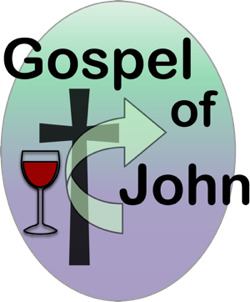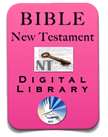
Bible Study Questions
John 21:15-25
Moving into the Future with Jesus the Living Lord
Paul J. Bucknell
_________________________
The Bible Teaching Commentary
John 1:21:1-14 | John 1:21:1-14 Questions | John 21:15-25 | John 21:15-25 Questions
Purpose
Bible study questions on John 21:15-25 provides a key link into the development of the early church and its leaders. Most commonly known is the three "Do you love me?" statements by Jesus to Peter.
Alone with Jesus: Peter, John and Jesus (John 21:15-25)
15 “So when they had finished breakfast, Jesus said to Simon Peter, “Simon, son of John, do you love Me more than these?” He said to Him, “Yes, Lord; You know that I love You.” He said to him, “Tend My lambs.” 16 He said to him again a second time, “Simon, son of John, do you love Me?” He said to Him, “Yes, Lord; You know that I love You.” He said to him, “Shepherd My sheep.” 17 He said to him the third time, “Simon, son of John, do you love Me?” Peter was grieved because He said to him the third time, “Do you love Me?” And he said to Him, “Lord, You know all things; You know that I love You.” Jesus said to him, “Tend My sheep.” (John 21:15-17).
This talk between Jesus and Peter is well known by the three times Jesus asked Peter whether he loved Him or not. After Peter’s affirmative answers, he is again charged to care for the sheep (the other disciples/believers). The importance of this scene is found in the fact that Jesus embraced Peter despite his betrayal and also re-called him to the leadership role in the church of God.
Bible study questions on John 21:15-25
-
What did Jesus ask Peter (21:15)? How is this similar or dissimilar to the question asked in 21:16 and 17?
-
John 21: 15, 16 and 17 each have a trio of statements: Write each down including Jesus’ question, Peter’s response and Jesus’ comment. What observations do you find?
-
Perhaps hidden in the English translations, depending on the Bible you use, are the different Greek words used of love. Agape love means a devoted love while phileo love refers to social love, “You love me; I love you.” Peter used ‘friendly’ or ‘social’ phileo love each time. Jesus, however, used agape love the first two times. Why might Peter have been dismayed by Jesus’ third question using phileo love (21:17)? Explain.
-
Jesus’ three statements are also interesting. Make any observations you find.
-
a) Feed my lambs (15)
-
b) Shepherd my sheep (16)
-
c) Feed my sheep (17)
-
Who did the lambs/sheep stand for?
-
What did it mean to feed or shepherd them?
-
Why might Jesus talk to Peter in this way?
-
What added sense did Jesus give to Peter in verses 18-19?
-
John cleverly identifies himself in 21:20. Did Jesus care to discuss John’s situation with Peter?
-
The Gospel of John was written by John (21:24). This is a firsthand testimony of the life and resurrection of Jesus Christ. Who does John refer to in the last statement of 24? Jesus or himself?
-
What strikes you most about the last verse, 21:25?
Summary
Jesus’ authority was quite apparent, but at the same time Jesus is reinstating His call towards Peter. This scene produced a deep soul-stretching exercise demanding Peter not to bury himself in his past failures but to focus on the needs of others around him. They need his care.
Our role will be different, but in a similar way we as His disciples are called into an intimate relationship with the resurrected Christ to serve Him here on earth.
Reflection and application questions
-
 Commitment times are stretching times. Why? What are some of the deep issues that are brought about when commitments are being sought out? Reflect on your past struggles as necessary.
Commitment times are stretching times. Why? What are some of the deep issues that are brought about when commitments are being sought out? Reflect on your past struggles as necessary. -
Who is the leader of the church? Whose lambs are they? Who is to watch over them? How do you know?
Conclusion of John 21:24-25
“24 This is the disciple who is testifying to these things and wrote these things, and we know that his testimony is true. 25 And there are also many other things which Jesus did, which if they were written in detail, I suppose that even the world itself would not contain the books that would be written” (John 21:24-25).
Reflection and application questions
-
What are your views of the church? Of your own life? Do you need a shepherd? Why?
-
What is it that you need feeding with? Why is this important?
-
How do we treat those shepherds (pastors) that God appoints over us?
-
Are you familiar with those who look down on the church? Did Jesus? What might Jesus say to those people who say they follow Jesus but are unwilling to be part of a local church?
-
This concludes our study on the Gospel of John.
Check out BFF's New Testament resources! -
Check out other quality BFF study questions!
A video and handout of this lesson is available on the BFF New Testament Library - see below.
Or see BFF's Resource Center for purchasing this low cost Library along with BFF's quality training material. |
info@foundationsforfreedom.net
Scriptures typically quoted from the New American Standard Bible unless noted:
(C) Copyright The Lockman Foundation 1988











